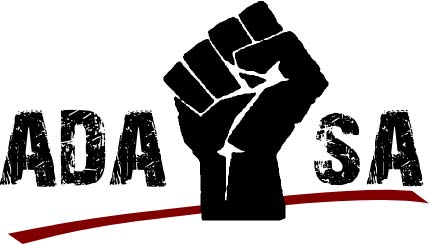We ask those who use cannabis to be realistic and understand that the general public are very misinformed and dubious about cannabis.
Employee Dagga Rights – The Truth
This article is reference to an article written on the Dagga Magazine website (
https://magazine.dagga.za.net/2014/11/02/employee-dagga-rights/
).
The Anti Drug Alliance of South Africa has often been quoted in the mainstream media as being advocates for the legalisation of cannabis in South Africa. With this being said, we believe that the proposed Medical Innovation Bill is a fantastic way to begin the process.
We believe that cannabis has huge potential medicinally, and commend the people that are advocating the legalisation of the plant.
There is literally millions of pages of facts surrounding the benefits of cannabis use – some scientifically proven and studied, others unstudied and unproven (as yet). However, as the Anti Drug Alliance of South Africa, we believe that we are obligated to ensure that the public are made aware of the real facts, and the real benefits. This is a fight that will always call morality and religious and cultural beliefs into question, and so, in order to make sure that the public gets the raw truth, we have to stick to the science.
In South Africa, as we have mentioned, legalisation (for medicinal use) is being debated. This is a big step for our traditionally conservative country, and there are many that are adding their voices to the call.
We ask those who use cannabis to be realistic and understand that the general public are very misinformed and dubious about cannabis.
We have to speak with one voice and stick to the facts.
A recent article on the Dagga magazine website, (
https://magazine.dagga.za.net/2014/11/02/employee-dagga-rights/
), makes certain claims regarding the use of dagga. We would like to say that although we commend and agree with the spirit of the article, we would like to correct the writer as he has made some incorrect statements which may lead to confusion and ultimately incorrect beliefs which contradict South African Law.
The article states that (verbatim) “Modern drug tests can only determine whether you are a user of dagga.”, and “Currently there is no dagga test that can determine if a user is under the influence of dagga.”
The writer is correct regarding the first statement. Most drug tests today indicate the presence of THC or cannabis metabolites in the person’s blood stream, urine or saliva.
The second statement is true as well, however, we say this on the side of caution. Cannabis is metabolised through our system at different rates. Whereas one person may ingest cannabis (at irregular intervals) and have completely metabolised it within 5 or 6 days, another could take 10 or 12 days.
Regular users can (after ceasing use) look at positive test results from 6 weeks up to 6 months, depending on the person’s weight, gender, how long they used for, how much they used and a wide variety of other factors.
The writer states:“Do not consent to drug testing unless your employment contract specifically covers drug testing or your company has a comprehensive Occupational Health policy in place.”
Most corporate companies have Substance Abuse Policies in place which speak about drug and alcohol use and abuse. Many forward-thinking companies have even included other forms of addiction such as gambling, pornography and even OTC and prescription medication abuse.
We agree that you should ensure that before being tested, that your company has a policy in place which can enforce testing.
As a whole we have no real gripes with the article in question, as the writer has researched well and explained user’s rights very well. The conclusion of the article has several bullet points which we would like to discuss.
We will note these bullet points and highlight those which are incorrect.
- While dagga is illegal don’t smoke at work.
- Don’t keep dagga on you, in your vehicle or at work .
- Get legal representation.
- Inform your representative of the scientific facts surrounding dagga. It is highly likely that he/she doesn’t know much except for propaganja.
- Remember: Tobacco, alcohol and coffee are also drugs.
- You are not a drug addict for testing positive for dagga use.
- You are not a criminal for testing positive for dagga use.
- You are not proven intoxicated or under the influence for testing positive for dagga use.
- You have not broken any laws by testing positive for dagga use.
- You are not guilty of misconduct for testing positive for dagga use. Especially so if you only smoke dagga on your own time and in the privacy of your own home.
- Misconduct, in regard to testing positive for dagga, can only be proven where the company is also implicated. Eg. You are found to be in possession of dagga while driving a company car or you smoke dagga in public while wearing company uniform.
Point 1. We agree.
Point 2. We agree.
Point 3. We agree.
Point 4. We agree.
Point 5. We agree.
Point 6. We agree, although, like any drug – legal ones included – we would like to state that addiction can happen to anyone at any time. Abusing any substance is easy, and if your work or personal life is affected in any way whatsoever because of your use (or abuse) of a substance, we urge you to seek help.
Point 7. We DISAGREE. Act 140 of 1992 clearly speaks about this. In Chapter II (Illegal Acts), section 4 states (verbatim):
“4. Use and possession of drugs.—No person shall use or have in his possession—
- (a) any dependence-producing substance; or
- (b) any dangerous dependence-producing substance or any undesirable dependence-producing substance,”
We would like to highlight the following sentence: “…No person shall USE or have in his possession…”
According to South African law, use of the substance is a criminal offence as well.
So, if we interpret the law correctly, if the substance is in your system, it means that your are legally in possession of it AND have used it as well, which is a criminal offence.
This means that technically, should you test positive for a drug in your system, your employer is actually compelled by law to report this to the Police, otherwise they may be complicit in a criminal offence.
Point 8. We agree.
Point 9. We DISAGREE. We have clearly shown above that by having dagga in your system, you are breaking the law.
Point 10. We neither agree nor disagree. This is difficult, however, many corporate companies’ substance abuse policies state that a positive result for alcohol or drugs is seen as misconduct, and can be an offence which incurs instant dismissal.
Point 11. We neither agree nor disagree. We cannot argue that dagga is (currently) illegal. We have shown that dagga use and possession is illegal, and by using it, you are by law then in possession of it in your system. Hence, as stated in the paragraph above, many corporate companies’ substance abuse policies state that a positive result for alcohol or drugs is seen as misconduct, and can be an offence which incurs instant dismissal.
Conclusion by The Anti Drug Alliance of South Africa
We would like to commend the writer of the article published at https://magazine.dagga.za.net/2014/11/02/employee-dagga-rights/ for a well written article, however, as activists in the legalisation of cannabis in South Africa, we would like state that we must at all times ensure that we know the law and our rights.
By giving incorrect information, we give credence to our opponents who state we ourselves use propaganda to disseminate information.
We ask all of our friends and colleagues in the cannabis legalisation arena to make sure we stick to the facts only, and also to make sure that we do not interpret the law to suit our agenda. Remember, we are already in the spotlight for our beliefs, and if we become radical and make incorrect assumptions and statements, it strengthens our opponents.
Remember, even if we disagree with a law, it does not give us the right to break it, however, we have the constitutional right to challenge it.
By giving incorrect information, we simply flush our credibility down the toilet and allow those who oppose use to highlight this and destroy our chances at changing the law for the better.
This document was prepared by Quintin van Kerken, Chief Executive Officer or the Anti Drug Alliance of South Africa.
Please feel free to contact the writer at
info@antidrugalliance.com
or call on 081 577 7715.


